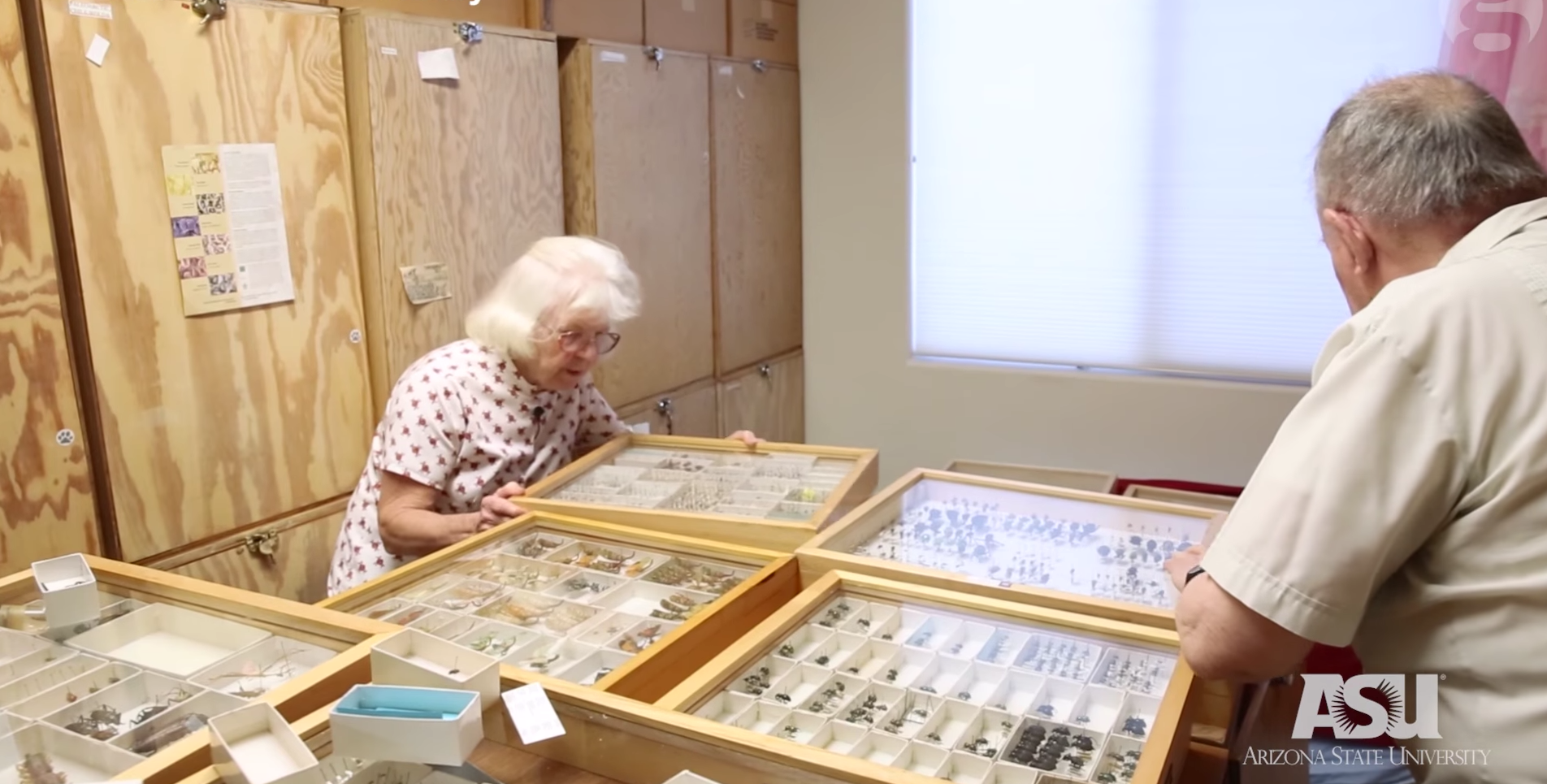These octogenarian Arizonans fell in love over insects. Now their bug collection is a bonanza for scientists.

A free daily email with the biggest news stories of the day – and the best features from TheWeek.com
You are now subscribed
Your newsletter sign-up was successful
Bug collectors Charles and Lois O'Brien announced this week that they're parting ways with their impressively massive insect collection, and donating it to Arizona State University for research. The octogenarian couple's collection — which takes up two rooms in their Tucson, Arizona, home — is worth an estimated $10 million and could provide invaluable insight to scientists studying "natural controls on the environment" and insect family trees, The Guardian reported. Out of the collection's more than a million insects, researchers believe as many of 1,000 of the insects could be "new to science."
So how did one couple get so many bugs? After meeting in the late 1950s at the University of Arizona and falling in love, the O'Briens went on to lead what Lois described as "sort of an Indiana Jones life" — at least for Charles. "It's been a wonderful life for me," she said. They both studied the "relations between insects, plants, and humans," before embarking on a life's work that took them to 70 nations across seven continents, The Guardian reported.
The couple would "rent a car and go out into the bush or jungle or desert, wherever, to collect" insects, Charles said. "Hit and run, is what we call it. We drive down the highway from some town and see a place that looks like it might be worth stopping, and we stop," Charles said. "If it's good we spend several hours collecting there."
The Week
Escape your echo chamber. Get the facts behind the news, plus analysis from multiple perspectives.

Sign up for The Week's Free Newsletters
From our morning news briefing to a weekly Good News Newsletter, get the best of The Week delivered directly to your inbox.
From our morning news briefing to a weekly Good News Newsletter, get the best of The Week delivered directly to your inbox.
While Lois was partial to planthoppers and Charles was "very happy with the weevils," the couple seems to have a soft spot for insects of all shapes and sizes. "We were brought together by insects," Charles said.
They still work on their collection 10 hours a day. "They're such wonderful creatures," Lois said. "Wouldn't you like to fly? Wouldn't you like to swim underwater for three days? Not to mention stinging. I have a neighbor I would like to sting."
Read the entire delightful story at The Guardian — and watch The Guardian's interview with the couple below. Becca Stanek
A free daily email with the biggest news stories of the day – and the best features from TheWeek.com
-
 The broken water companies failing England and Wales
The broken water companies failing England and WalesExplainer With rising bills, deteriorating river health and a lack of investment, regulators face an uphill battle to stabilise the industry
-
 A thrilling foodie city in northern Japan
A thrilling foodie city in northern JapanThe Week Recommends The food scene here is ‘unspoilt’ and ‘fun’
-
 Are AI bots conspiring against us?
Are AI bots conspiring against us?Talking Point Moltbook, the AI social network where humans are banned, may be the tip of the iceberg
-
 Blue Origin launches Mars probes in NASA debut
Blue Origin launches Mars probes in NASA debutSpeed Read The New Glenn rocket is carrying small twin spacecraft toward Mars as part of NASA’s Escapade mission
-
 Dinosaurs were thriving before asteroid, study finds
Dinosaurs were thriving before asteroid, study findsSpeed Read The dinosaurs would not have gone extinct if not for the asteroid
-
 SpaceX breaks Starship losing streak in 10th test
SpaceX breaks Starship losing streak in 10th testspeed read The Starship rocket's test flight was largely successful, deploying eight dummy satellites during its hour in space
-
 Rabbits with 'horns' sighted across Colorado
Rabbits with 'horns' sighted across Coloradospeed read These creatures are infected with the 'mostly harmless' Shope papilloma virus
-
 Lithium shows promise in Alzheimer's study
Lithium shows promise in Alzheimer's studySpeed Read Potential new treatments could use small amounts of the common metal
-
 Scientists discover cause of massive sea star die-off
Scientists discover cause of massive sea star die-offSpeed Read A bacteria related to cholera has been found responsible for the deaths of more than 5 billion sea stars
-
 'Thriving' ecosystem found 30,000 feet undersea
'Thriving' ecosystem found 30,000 feet underseaSpeed Read Researchers discovered communities of creatures living in frigid, pitch-black waters under high pressure
-
 New York plans first nuclear plant in 36 years
New York plans first nuclear plant in 36 yearsSpeed Read The plant, to be constructed somewhere in upstate New York, will produce enough energy to power a million homes